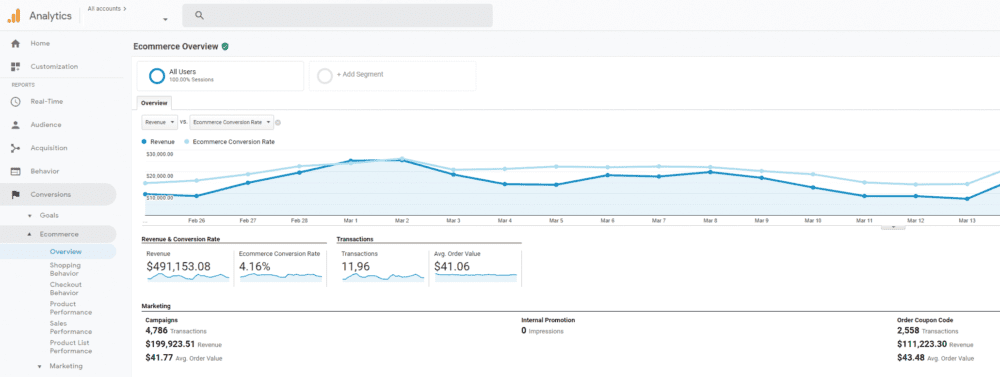As a professional vacation rental manager, you likely have a multitude of data at your fingertips. But with so much data available, how do you know whether you’re using the right combination to develop a comprehensive data-driven approach to your digital strategy?
Knowing which data sets to review can help you gain valuable insights into guests’ online behavior and ignite business growth. You may think you already have a firm handle on your guests’ preferences, but assumptions aren’t always accurate once the data is analyzed. Ignoring key performance indicators can cost money, both upfront in marketing/advertising costs and later through missed revenue from lost bookings.
There are thousands of ways to build an effective digital strategy from the various accessible data points. In this article, we’ve outlined a few high-level concepts to get your wheels spinning and help you continue to improve on your own success.
DEVELOP A DATA-DRIVEN WEBSITE STRATEGY WITH GOOGLE ANALYTICS
Analyzing website visits is crucial in building an effective direct booking strategy. Start by using a tool like Google Analytics, offered as a free service by Google and easy to install on most website platforms. This tool will help you better understand website visitors and how they interact with your brand online.
More importantly, ensure that ecommerce conversion tracking is set up correctly on your direct booking website. Although Google Analytics provides rich information about your website visitors, being able to tie website visitor behavior to conversion metrics is the best thing you can do for your online business. How can you optimize your website strategy if you can’t tell which visitors are actually booking?
If you’ve ever looked at Google Analytics, you’ve probably noticed that it contains a wealth of data. It can be challenging to decipher the best way to leverage that data to improve your website performance. We recommend starting with the following questions to analyze your website visitors’ behavior:
- What information are my guests looking for?
- Which pages or sections of my website are being viewed most often?
- What search filters are being used most often?
- Are my guests viewing the information I want them to view?
- Are there pages on my website that contain valuable information that aren’t being viewed?
- Why are people coming to the site and not booking? Where are we losing them?
- Which properties are performing well and which could use attention?
The takeaway? A user-centric website drives more bookings. Use tools like Google Tag Manager to help identify which property amenities to highlight. Be sure to showcase features that drive conversions. The content you want visitors to see should be easy to find—driving potential guests back into the booking funnel. Figure out where website visitors are dropping off and try to capture their information before they leave. Retarget those visitors via email, social media, or other paid advertising platforms and get them back to your website to book.
USE RESERVATION DATA TO CREATE BETTER EMAIL STRATEGIES
Take a look at reservation data and your property management software’s available reports to discover more about how and when guests book. Use the information to get in front of guests at the right time: send more personalized, highly targeted emails, resulting in both an increase in revenue and a decrease in cost per email campaign.
Tap into reservation data to help identify specific goals. Do you have last-minute availability you’re trying to fill? Are there properties of a specific size—or with certain amenities—that need to see an increase in occupancy? Use your areas of need to set goals, and then consider how best to reach those goals using the guest data available.
If a potential guest has dropped off your website before making a reservation, use a strategy such as cart abandonment emails to reach out with a reminder about their interest. If the property they first searched for is now unavailable, suggest other properties with similar features that are available during their search dates. Managers looking to fill last-minute availability may consider sending an email to guests within driving distance. To increase occupancy for larger properties, consider sending an email to renters who have placed a reservation for more than X guests in the past. Use data such as guest location, booking windows, property location, and amenities to build a targeted audience for your email campaigns.
Thoughtful emails produce strong results. When building your email marketing strategy, we recommend creating email content that feels personal to your guests. An alternative way to leverage reservation data is to automate a series of stay-cycle emails. Use these emails to encourage the purchase of post-booking add-ons, based on booking and arrival dates.
As you will quickly see, there are numerous ways to tap into reservation data to develop an email strategy that converts. Although it’s important to create email content that feels personal to your guests, it’s also important to build a strategy that’s “personal” to your business goals.
CREATE RELEVANT CONTENT BASED ON GUEST SEARCHES
Where are website visitors coming from and how are they finding you online? To identify which online marketing channels are bringing in business, use website traffic reports from Google Analytics or ask your guests at the time of booking. Then, develop a content strategy that enables you to meet guests where they are booking, providing content that is tailored to the audiences on those channels.
When looking to increase your website’s visibility in search engine results, look at keyword position data for other travel sites with a presence in your region. Analyze this competitive data to identify which keywords your website can rank highest on, and then build a content strategy to boost your organic search traffic.
Although driving traffic to your website is certainly an important factor in building your content strategy, focus on content that actually helps you convert website visitors into guests. An effective content strategy isn’t just “set it and forget it.” It’s vital to analyze not just which content drives visitors to your website, but which content attracts visitors who make reservations. Adjust your approach based on the results.
Good website content can help you stand apart from your competition, both in search engine results and brand awareness. Showcase what you know best by sharing your local knowledge and area expertise. You know your guests—and now you’ve got data to back it up—so speak their language by creating content that resonates.
USE DATA TO OPTIMIZE THE OTA STRATEGY
Use third-party booking sites to grow occupancy by reaching guests you usually wouldn’t reach. Look at reservation data to identify things like direct booking pace, seasons in the most need of occupancy, and individual unit performance. Leverage what you find and make adjustments to the distribution strategy to increase otherwise “hard to get” reservations.
Connecting your properties to a channel partner such as Airbnb or Booking.com through a channel manager can be a much more efficient way to handle property data. Using a channel manager means you can spend more time enhancing guest experiences and less time maintaining consistent listings across different channels. First, ensure that listings are complete and accurate for each property. Although users of third-party booking sites likely have different search behaviors than visitors to your website do, you can still leverage your website behavior data to properly highlight features that convert lookers to bookers.
Other strategies to consider:
- Discount last-minute bookings and gap weeks to incentivize travelers searching on third-party sites.
- Set up blackout dates for stays 180+ days out. You still have the opportunity to make those direct bookings without paying a commission.
- Make data-driven adjustments to your listings to appeal to the right clientele on each platform, stay competitive in your market, and get more bookings.
Want to know more about how you can leverage data to drive your digital strategy? Bluetent recently hosted a webinar in which we discussed these topics in more detail. You can also give us a call at 970-704-3240.



Comments are closed.